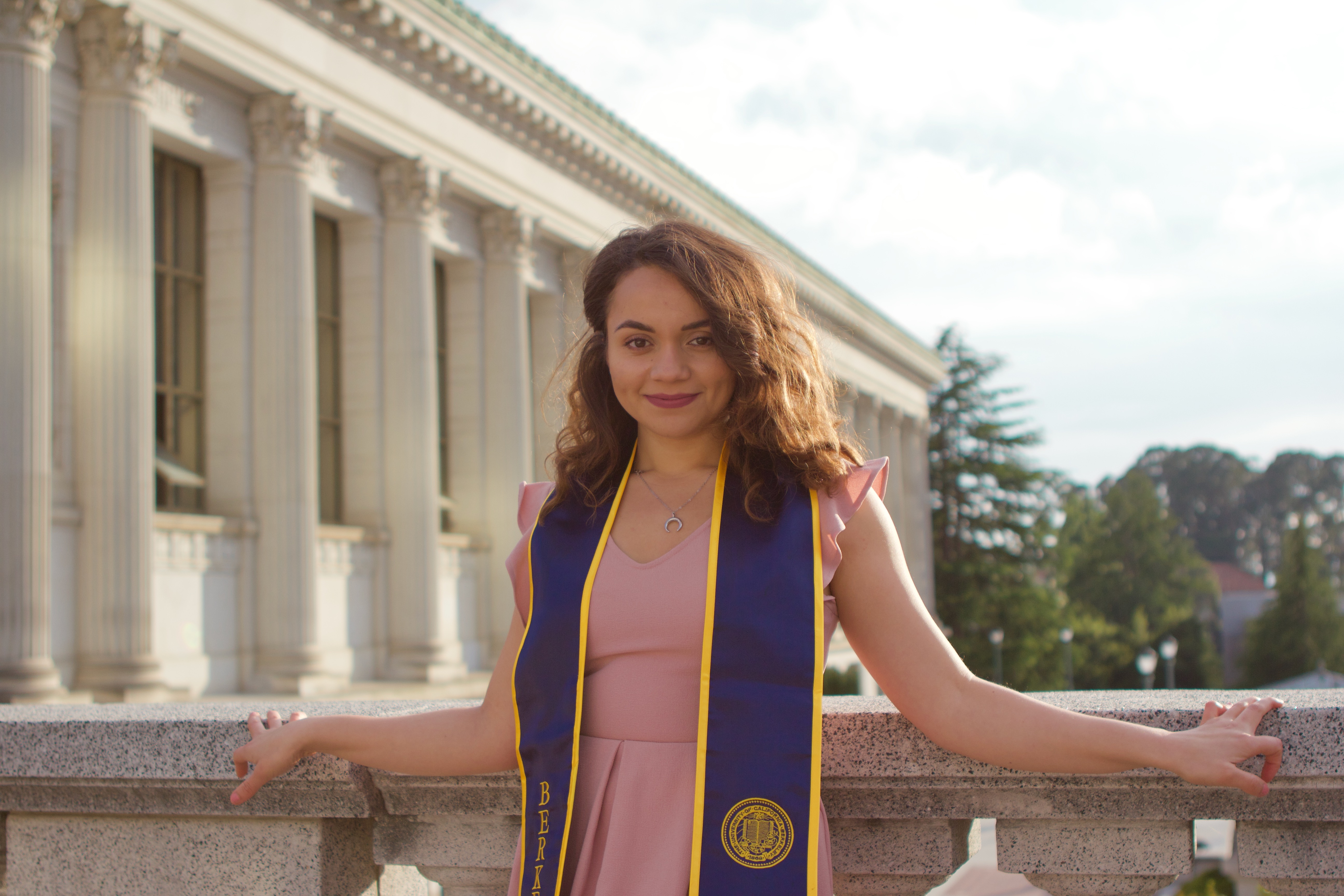Silvia Miramontes graduated from the School of Information with a Master of Information and Data Science in 2020. She currently works as a Computer Systems Engineer at Lawrence Berkeley National Laboratory. Prior to the I School, Silvia graduated with a Bachelor of Arts in Applied Mathematics from UC Berkeley. She was raised in Tijuana, Mexico, and spent her junior and senior years of high school in San Diego. She is a first-generation college graduate.
Why did you choose the 5th Year MIDS program?
After accumulating various research experiences as an undergrad, I decided to pursue a career in research. However, to become a researcher in industry or a laboratory, the minimum educational requirement is a master’s degree. I decided to apply to 5th Year MIDS after I heard about the breadth of courses offered.
What was the most surprising thing about the year?
I was pleasantly surprised with the flexibility allowed for our final projects. Unlike my experience as an undergraduate (where I had to solve a very specific problem generated by a professor or a group of TA’s), I was given the opportunity to find a solution to some issues I’m very passionate about.
What was your favorite class and why?
I had three favorite courses! Applied Machine Learning (W207) with Amit Bhattacharyya gave me an in-depth understanding of the various supervised and unsupervised methods out there. Through this class, I also got my first “wake up call” to make sure to ALWAYS clean and analyze my data.
W266, NLP with Deep Learning with Matthew Sims provided me with the most theoretical understanding of various neural networks as applied to natural language processing problems, even images. Having the opportunity to create my own project (my teammate Emma and I chose to find a potential solution for the detection of fake news through summarization techniques) was one of the most rewarding experiences of the program.
W241, Experiments and Causal Inference with Micah Gell-Redman was probably one of the hardest courses I have ever taken. But I must say, once you get a hang of it, you’ll be questioning any research project you stumble upon. It’s complex, but its value is very understated in data science.
Whoops, maybe I have four favorite classes! The last one is Research Design and Applications for Data and Analysis (W201) with Mike Rivera. It gave us all the resources needed to successfully present our work as future data scientists. I learned very valuable things throughout this class, like the importance of the proper application of research methods, and how that might translate to the audience via a presentation, conference or paper.
 What do you wish someone had told you before you began the 5th year program?
What do you wish someone had told you before you began the 5th year program?
Never EVER underestimate the work you need to do for your asynchronous material!
What’s a data science application that intrigues you and why?
In the beginning, I was only interested in biomedical applications, such as the acceleration of medical tests via a convolutional neural network. But lately, given the current social climate, I’ve come to realize the power we hold as data scientists. With the appropriate data, we have the power of recognizing a biased dataset or a news article that may be filled with lies. If we can leverage our technical preparation to the most pressing issues in society, I believe we have a chance to ethically improve the lives of many individuals.
Any plans for the future?
One of my goals is to pursue a doctorate degree in biomedical informatics. After finishing the program, I’ll be continuing my work at Berkeley Lab in collaboration with UCSF to detect neurons in post-mortem tissue for the understanding of Alzheimer’s disease.









